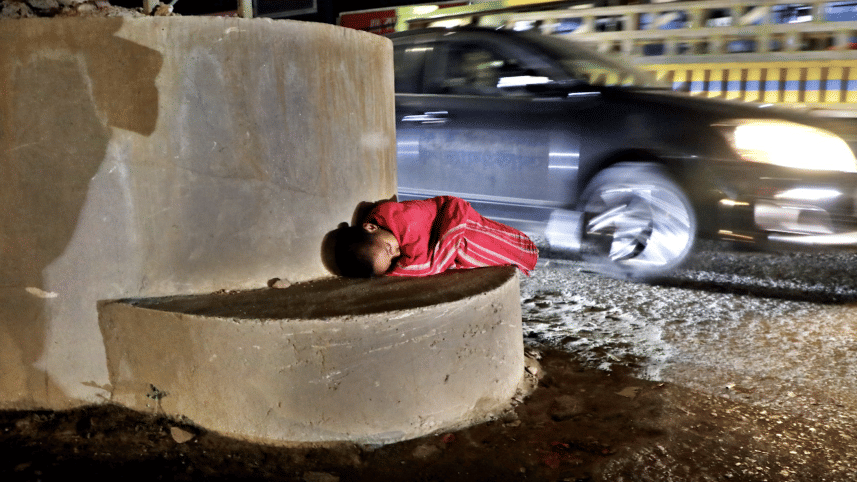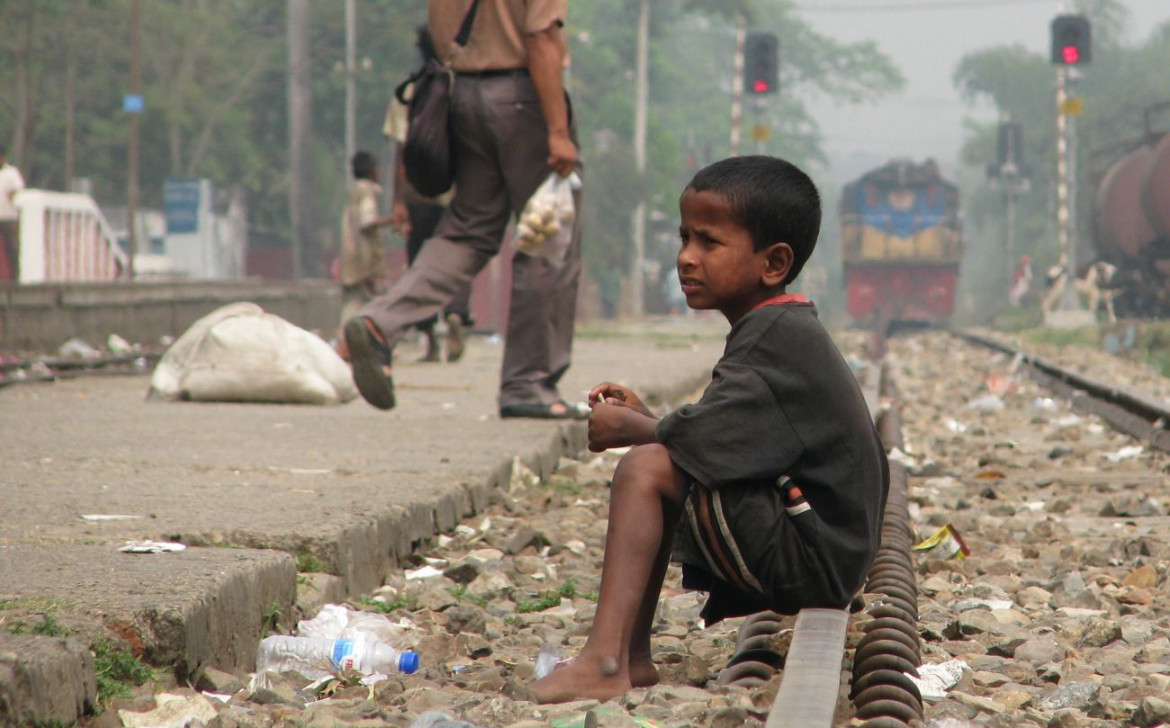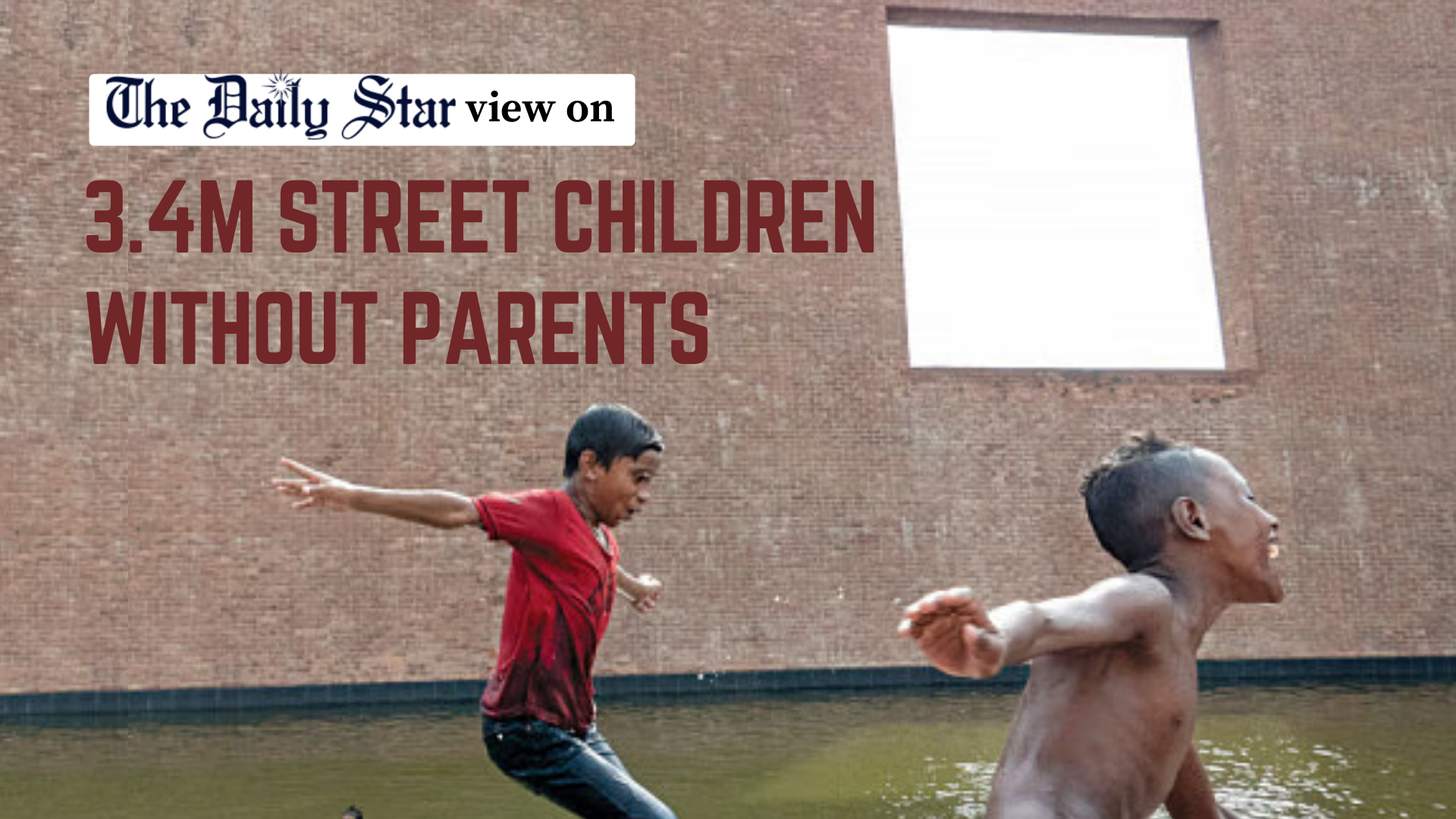Keeping children under parental care must be a top priority

A recent study conducted jointly by Unicef and the Bangladesh government shows that over 3.4 million children in the country are living on the streets without parental care. The National Child Labour Survey 2022 by the Bangladesh Bureau of Statistics (BBS), on the other hand, found that 4.4 percent of all children aged five to 17 years—around 1.77 million—are engaged in child labour.
It is clear that these children are deprived of basic amenities of life, and need support on multiple levels with food, healthcare, education, shelter, and protection from abuse and exploitation.
Family is the most important social structure to ensure a child's growth in every respect. Article 27 of the United Nations Convention on the Rights of the Child (CRC) accords every child the right to "a standard of living adequate for the child's physical, mental, spiritual, moral and social development" and requires that parents or those responsible for the child "secure, within their abilities and financial capabilities, the conditions of living necessary for the child's development." Additionally, Article 18 of the CRC states, "Parents or, as the case may be, legal guardians, have the primary responsibility for the upbringing and development of the child."
The harmful effects of children without parental care are well-recognised. These children may be living on the streets or in alternative care arrangements that provide shelter, and there are ongoing global efforts by Unicef, development agencies, and governments to remove children from these situations. The goal is to place them with their families or with the people they love, such as under community-based and family-substitute care centres or with trusted and close relatives.
The UN Guidelines for the Alternative Care of Children places heavy emphasis on preserving family ties and suggests removal from family care as a measure of last resort. Article 3 of these guidelines states, "The family is the fundamental group of society and the natural environment for the growth, well-being, and protection of children, efforts should primarily be directed to enabling the child to remain in or return to the care of his/her parents, or when appropriate, other close family members. The State should ensure that families have access to forms of support in the caregiving role." Article 14 says, "Removal of a child from the care of the family should be seen as a measure of last resort and should, whenever possible, be temporary and for the shortest possible duration. Removal decisions should be regularly reviewed and the child's return to parental care, once the original causes of removal have been resolved or have disappeared."
Despite the above international convention and guidelines, there are many situations in which parents in Bangladesh consider placing children under alternative care. They may be unable or unwilling to provide basic necessities due to poverty, lack of access, or other reasons, and place the children in institutions such as orphanages, school hostels, and NGO shelter homes. The other reasons may include natural disasters, the breakdown of the joint family system, death, separation, or migration of one parent. Disability is another important reason for the placement of children in institutions. Some children also opt out of parental care due to violence, exploitation, abuse, neglect, and trafficking. Some children are placed in residential care and temporary shelters after being rescued from the street and other places.
Family is the first line of care for children, and parents have the prime responsibility to protect and raise them. But in many cases, families do not or cannot fully protect the rights of their children. The family itself may violate the children's rights. For example, parents sometimes physically punish their children. Article 20 of the CRC stipulates that state parties are responsible for ensuring such care in situations where children are "temporarily or permanently deprived of his or her family environment."
In Bangladesh, there is no reliable data on children in alternative care. But we know that in many cases, infants between one and three years old are also in institutional care. Children in these situations may suffer irreversible damage to their brains, and it can severely impair their psychological development.
The children, especially the youngest ones in institutional care, may be affected by many types of psychosocial problems. They may suffer from depression, loss of concentration, stress, and mental disturbances. Some children also experience a deep sense of loss as a result of separation from siblings.
Article 22 of the UN's alternative care guidelines states, "Following the predominant opinion of experts, alternative care for young children, especially those under the age of 3 years, should be provided in family-based settings. Exceptions to this principle may be warranted to prevent the separation of siblings and in cases where the placement is of an emergency nature or is for a predetermined and very limited duration, with planned family reintegration or other appropriate long-term care solution as its outcome."
Accordingly, there is a wide consensus in both the developed and developing world today that each country should take strong initiatives towards reducing the number of children without parental care. Whenever possible, children should be taken out of institutional care and reunited with their families.
As per the CRC, the state is responsible for protecting the child from violence, abuse, and neglect. No child should be removed from his or her family without good justification. In certain circumstances, like emergencies, persecution, violence in the home, health needs, or poor financial situations, if children are deprived of their family environment, the state must protect the child and arrange appropriate alternative care.
There are many forms of institutionalisation of children in Bangladesh. However, there have been very limited efforts made so far to de-institutionalise child care by preventing family separation, promoting family reintegration, or using better family-based alternative care arrangements. The government should look into the entire gamut of alternative care systems for children in the country and take necessary measures to reduce this practice and establish minimum standards for children's care. The Ministry of Social Welfare, Ministry of Women and Children Affairs, Department of Social Services, and NGOs should make serious efforts to promote early childhood development, strengthen and widen the government's social safety net programmes, and ensure basic education, healthcare, and other related facilities with a focus on the disadvantaged families so that these families can afford to provide parental care to their children.
Dr Nawshad Ahmed, an ex-UN official, is an economist and urban planner.
Views expressed in this article are the author's own.
Follow The Daily Star Opinion on Facebook for the latest opinions, commentaries and analyses by experts and professionals. To contribute your article or letter to The Daily Star Opinion, see our guidelines for submission.




 For all latest news, follow The Daily Star's Google News channel.
For all latest news, follow The Daily Star's Google News channel. 

Comments